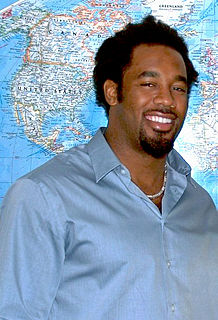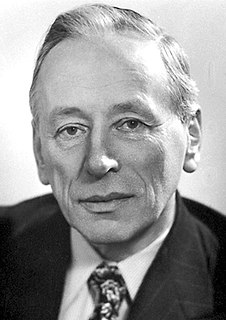A Quote by Dhani Jones
There's four main pillars to the bow tie - self-representation, service, collaboration and critical thought. You have to understand how to represent yourself and critically understand how to collaborate and serve others.
Related Quotes
I've thought a lot about what it means to be the President. I also understand an administration is not one person but an administration is dedicated citizens who are called by the President to serve the country, to serve a cause greater than self. And so I've thought about an administration of people who represent all America, but people who understand my compassionate and conservative philosophy.
If you understand others you are smart.
If you understand yourself you are illuminated.
If you overcome others you are powerful.
If you overcome yourself you have strength.
If you know how to be satisfied you are rich.
If you can act with vigor, you have a will.
If you don't lose your objectives you can be long-lasting.
If you die without loss, you are eternal.
The bow tie started off with one of my friends, Kunta Littlejohn. He said if you want to be anybody, you've got to rock the bow tie. I dismissed it at first, but later he told me he had non-Hodgkin's lymphoma, so I decided to wear the bow tie to support him. And as he got better, I came to learn the power of the bow tie.
The search ends with the realization that there is no such thing as enlightenment. By searching, you want to be free from the self, but whatever you are doing to free yourself from the self is the self. How can I make you understand this simple thing? There is no 'how'. If I tell you that, it will only add more momentum to that (search), strengthen that momentum. That is the question of all questions: "How, how, how?"
Helping others entails learning how you are helped. In order to heal others, you must learn to heal yourself. Learning how to give to yourself is part of learning how to give to others. If you are stingy with yourself, you will be stingy with others. When you understand how everything is given to you, you will be able to give everything to others.
I was very combative as a creative person at that time [while The Ben Stiller Show]. I didn't understand how to play politics with the studios. I didn't know how to creatively collaborate with the people who were paying the bills, and that came up all the time on every project I was doing, and it took me a really long time to figure out how to collaborate in a healthy way.
Don't try to do this by yourself: to become a good yogi you need a teacher. Find a teacher you can bow to, who can teach you how to be kind - how to serve others - because the key to enlightenment lies in that. Be humble, work hard, study and practice. Chant the Name of God, do japa and meditate, every day.
We can use the romantic relationship as a microcosmic example. Until you really understand the other person and where they're coming from and you understand yourself and how you contribute to things, you can never make that relationship better. And I think sometimes people don't understand how much these things are related.
If you understand real practice, then archery or other activities can be zen. If you don't understand how to practice archery in its true sense, then even though you practice very hard, what you acquire is just technique. It won't help you through and through. Perhaps you can hit the mark without trying, but without a bow and arrow you cannot do anything. If you understand the point of practice, then even without a bow and arrow the archery will help you. How you get that kind of power or ability is only through right practice.
Pedagogy is not about training, it is about critically educating people to be self reflective, capable of critically address their relationship with others and with the larger world. Pedagogy in this sense provides not only important critical and intellectual competencies; it also enables people to intervene critically in the world.
You are never alone in Afghanistan. You are always in the company of others, usually family. You don't understand yourself really as an individual, you understand yourself as part of something bigger than yourself. Family is so central to your identity, to how you make sense of your world, it is very dramatic, and therefore an amazing source of storytelling, a source of fiction for me.





































